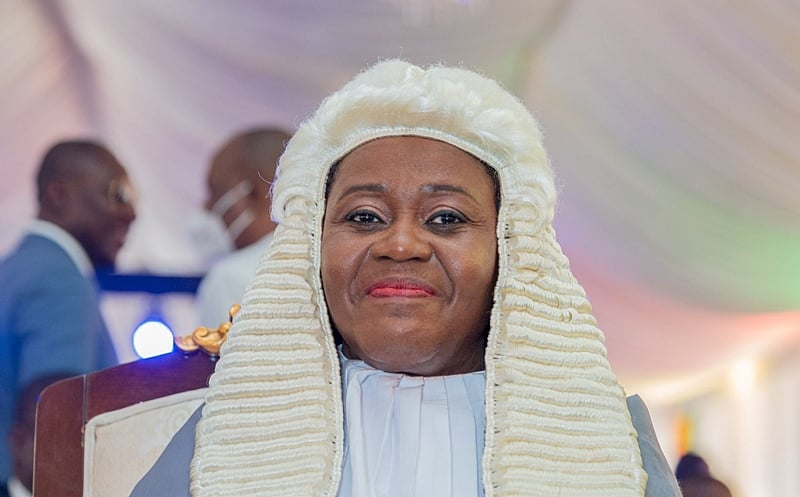Chief Justice Gertrude Sackey Torkornoo has announced that the digitization drive within Ghana’s Judicial Service will continue uninterrupted, underscoring the commitment to enhancing justice delivery through innovative technology. Speaking during the commencement of the 67th Legal Year, she highlighted that the agenda falls under the Leadership Innovation and Technology (LIT) pillars. The Chief Justice articulated a vision for transforming traditional practices within the Judicial Service of Ghana (JSG) by leaning into modern structures like virtual courts and electronic processes, which are crucial components of an effective e-justice system. Her message serves not only to set a tone for the upcoming legal year but also to invite collaboration from all stakeholders involved in the justice system to uphold the principles of democracy by fostering a disciplined, competent, and effective work ethos in and around the courts.
In elaborating on the current initiatives, Chief Justice Torkornoo cited the positive outcomes of the Court Shift System, which had been implemented to minimize the case backlog in various regions. Feedback has shown that this system, with its flexible court hours, is making justice more accessible to the public, accommodating varied schedules and thus increasing the efficiency of court proceedings. This innovation demonstrates a proactive approach to tackling systemic delays and improving the overall functionality of the judiciary. The Chief Justice affirmed her belief in the collective capability of the judicial community to fulfill the expectations established by the country’s 1992 Constitution, emphasizing the importance of unity and support in reaching these goals.
To further bolster access to justice, the Chief Justice introduced the Small Claims Debt Recovery Courts, operational during afternoons and Saturdays specifically to alleviate issues related to small debt cases in district courts. This new system aims to streamline the handling of such cases, reflecting a keen awareness of the need for more responsive judicial processes. By expanding court accessibility and specializations, particularly for small claims, the initiative addresses a significant challenge faced by many citizens in accessing prompt legal relief for minor financial disputes.
Moreover, Chief Justice Torkornoo mentioned that the digitization of court records has facilitated their electronic storage and retrieval, eliminating the cumbersome nature of traditional record-keeping. This shift not only enhances the administrative efficiency of the JSG but also aligns it with the global trend of digitization in public service. Such interventions are set to continue into the upcoming 2024-25 legal year, as the Chief Justice envisions almost a seamless integration of technology into judicial operations, laying a strong foundation for future advancements in the sector.
The theme for the 67th Legal Year, “Building the Pillars of Justice Delivery through Leadership, Innovation, and Technology,” reflects a broader focus aligned with the Judiciary’s objectives. Last year’s theme emphasized key components such as Law, Ethics, Assets, and Due Process (LEAD), aiming to reinforce the integrity and transparency of judicial operations. As part of the LEAD project, the Judiciary has prioritized developing a comprehensive curriculum for paralegal training, aimed at equipping both judicial staff and external service providers with the necessary knowledge and skills to effectively navigate the legal landscape, thereby improving the quality of justice delivery.
Ultimately, Chief Justice Torkornoo’s initiatives and declarations highlight her overarching goal of nurturing a legal environment characterized by efficiency, efficacy, and accessibility. The integration of technology, innovative systems, and training initiatives align with her vision to enhance the culture of leadership within the Judicial Service of Ghana. As the 67th Legal Year unfolds, the legal fraternity is called upon to remain steadfast in their commitment to justice, aiming not only to meet constitutional expectations but also to build a resilient judicial framework that can adapt to contemporary challenges and opportunities. Through collaborative efforts, the judiciary can confidently stride into future advancements, ensuring that Ghana’s justice system remains robust and responsive to the needs of its citizens.














